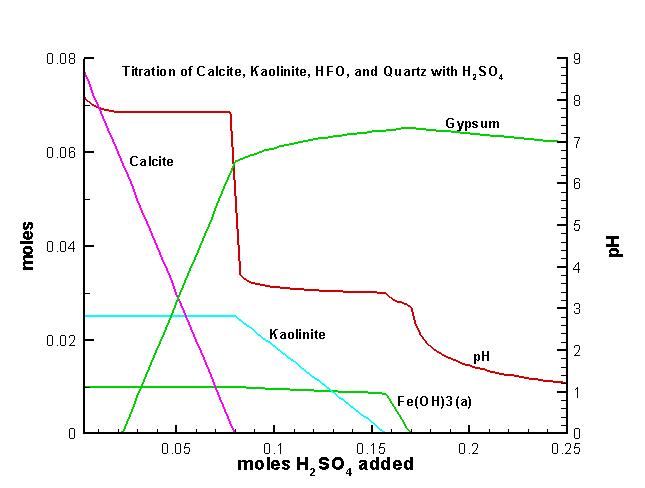 |
Cours 3e cycle Romand en Sciences de la Terre |  |
This is an archive page. Links, addresses, phones are outdated.
Thermodynamic Models
in Petrology, Ore Systems, and Environmental Issues
Professor G.M. Anderson, University of Toronto
Geneva, October 18-22 and 25-26, 2004

There are two aspects to any course in thermodynamics. One is to understand what it is, and what are its strengths and limitations. The other is to learn how to apply it in some field of specialization. This course will consist of lectures, interspersed with problem-solving sessions. The lectures will begin with an explanation of some fundamental aspects of thermodynamics, and then explain how to use that information in a practical way. The problem-solving sessions will be devoted to using thermodynamics to get answers to some geological problems. The emphasis will be on using computers, both with spreadsheets made by participants, and programs written by others for specific purposes. An important emphasis throughout will be the sources and importance of thermodynamic data, and how experiments and natural assemblages can yield such data. Lecture topics will include fundamental equations, equilibrium constants, activities, fugacities, equations of state, electrolyte and solid solutions, redox states, and process modeling. Geological problems will be drawn from petrology, ore genesis, and environmental issues. Lectures and intensive practical sessions (most of them with computer support) will be mixed as useful. The course will be taught in English, but in discussions and practicals French and German are welcome as well.
No previous knowledge of thermodynamics will be assumed, although it is recommended that participants have read chapters 1-5 "Thermodynamics of Natural Systems" by G.M. Anderson (Wiley, 1996) or equivalent chapters an opther introductory text. Many aspects of the subject and some diagrams from that text will be used in the course.
Presentation: This course will be taught by Professor G.M. Anderson from University of Toronto. He is a renowned specialist in the thermodynamics of geochemical systems, and an exceptional teacher in this field. He has published several outstanding textbooks on thermodynamics in the Earth Sciences.
Organisation: This course is organized by Prof. L. Fontboté (University of Geneva) and Prof. M. Engi (University of Bern). Maximum number of participants is 20. Participants needing a certificate will have to pass successfully a test.
Costs: For participants from one of the CUSO universities, costs of travel, participation, and accommodation are borne by the 3e cycle. This course is also open also to students at master/diploma level. Space permitting, participants from non-CUSO universities may be allowed, but they will need to pay for their own travel, meals and accommodation.
Registration: to Jacqueline.Berthoud@terre.unige.ch until October 5, 2004.
Further organization details and updates will be posted on
seminarsSection des Sciences de la Terre, Université de Genève,
Rue des Maraîchers 13, CH-1205 Genève, Suisse - Switzerland[Ore Deposits ] [Dept Mineralogy]
[University of Geneva] [Earth Sciences] [Geology Department] [Mineralogy Department]
[Institut F.-A. FOREL] [Diplôme en sciences naturelles de l'environnement] [ELSTE]
[SWISS GEOWEB] [Other Earth Sciences Links] [Mineral search] [Web search]Send comments on page to Pierre.Perroud@terre.unige.ch